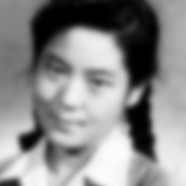We are pleased to announce publication of Chinese Poetry and Translation: Rights and Wrongs (Amsterdam University Press, 2019).
Open access download here. Order print copies here.
CHINESE POETRY AND TRANSLATION: RIGHTS AND WRONGS
edited by Maghiel van Crevel and Lucas Klein
Introduction: The Weird Third Thing
Maghiel van Crevel and Lucas Klein
Part One: The Translator’s Take
(1) Sitting with Discomfort: A Queer-Feminist Approach to Translating Yu Xiuhua
Jenn Marie Nunes
(2) Working with Words: Poetry, Translation, and Labor
Eleanor Goodman
(3) Translating Great Distances: The Case of the Shijing
Joseph R. Allen
(4) Purpose and Form: On the Translation of Classical Chinese Poetry
Wilt L. Idema
Part Two: Theoretics
(5) Embodiment in the Translation of Chinese Poetry
Nick Admussen
(6) Translating Theory: Bei Dao, Pasternak, and Russian Formalism
Jacob Edmond
(7) Narrativity in Lyric Translation: English Translations of Chinese Ci Poetry
Zhou Min
(8) Sublimating Sorrow: How to Embrace Contradiction in Translating the “Li Sao”
Nicholas Morrow Williams
(9) Mediation Is Our Authenticity: Dagong Poetry and the Shijing in Translation
Lucas Klein
Part Three: Impact
(10) Ecofeminism avant la lettre: Chen Jingrong and Baudelaire
Liansu Meng
(11) Ronald Mar and the Trope of Life: The Translation of Western Modernist Poetry in Hong Kong
Chris Song
(12) Ya Xian’s Lyrical Montage: Modernist Poetry in Taiwan through the Lens of Translation
Tara Coleman
(13) Celan’s “Deathfugue” in Chinese: A Polemic about Translation and Everything Else
Joanna Krenz
(14) Trauma in Translation: Liao Yiwu’s “Massacre” in English and German
Rui Kunze
(15) A Noble Art, and a Tricky Business: Translation Anthologies of Chinese Poetry
Maghiel van Crevel



 Dissertation Reviews
Dissertation Reviews